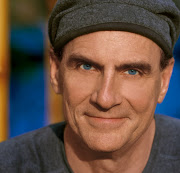 Who knew? GOP presidential candidate and arbiter of all things pure and holy Rick Santorum watches NBC’s “Saturday Night Live.” How do we know this? Because this week, Santorum said this about an October 16, 2011 SNL sketch spoofing a GOP debate, in which Santorum was portrayed in a San Francisco gay bar: "The left, unfortunately, participates in bullying more than the right does. They say that they’re tolerant, and they’re anything but tolerant of people who disagree with them and support traditional values." He said this in response to a question from New Hampshire radio station WGIR.
Who knew? GOP presidential candidate and arbiter of all things pure and holy Rick Santorum watches NBC’s “Saturday Night Live.” How do we know this? Because this week, Santorum said this about an October 16, 2011 SNL sketch spoofing a GOP debate, in which Santorum was portrayed in a San Francisco gay bar: "The left, unfortunately, participates in bullying more than the right does. They say that they’re tolerant, and they’re anything but tolerant of people who disagree with them and support traditional values." He said this in response to a question from New Hampshire radio station WGIR.The headline here is that Santorum evidently feels bullied. Somebody forgot to tell him that cutting political satire is part of the ‘running for president package.’ On television it goes all the way back to the 1960s and a show called “That Was the Week that Was.” The show only ran for two seasons, but it managed to skewer everybody from Nikita Kruschev to Richard Nixon. But SNL? Well, SNL is now in its 36th season and making fun of politicians is its stock in trade. But you knew that, Rick, now didn’t you?
Santorum claiming he is bullied is akin to Pamela Anderson complaining about men looking at her breasts. The former Pennsylvania senator (1995-2007) and flailing, yet naive 2012 presidential hopeful needs to get a grip.
 Politics is tough territory and many of Santorum’s actions, causes he supports, judgmental statements he makes and socio/political stances have invited raw satire. Santorum is, after all, the man who once said, “The reason Social Security is in big trouble is we don’t have enough workers to support the retirees. Well, a third of all the young people in America are not in America today because of abortion, because one in three pregnancies ends in abortion." Let me see; I think Santorum is trying to tell us that our social security fund would be more socially secure if we would outlaw abortion. Is it me, or is this twisted thinking?
Politics is tough territory and many of Santorum’s actions, causes he supports, judgmental statements he makes and socio/political stances have invited raw satire. Santorum is, after all, the man who once said, “The reason Social Security is in big trouble is we don’t have enough workers to support the retirees. Well, a third of all the young people in America are not in America today because of abortion, because one in three pregnancies ends in abortion." Let me see; I think Santorum is trying to tell us that our social security fund would be more socially secure if we would outlaw abortion. Is it me, or is this twisted thinking?Santorum needs to stop whining and sink slowly back into the private sector. He should do that because he is muddying the national conversation about issues that truly matter – issues like jobs, home foreclosures, poverty, hunger, equal pay for equal work, underfunded public school systems and healthcare. His issues are what he considers moral causes. He is unabashedly anti-abortion, anti-marriage equality, anti-pre-marital sex, anti-birth control (or “artificial” birth control, as he calls it), and most vehemently anti-homosexuality. Santorum has been in the game long enough to know that politics is dirty – real dirty. It is not a moralistic endeavor. It’s a power enterprise. Santorum has been in the public eye long enough to know that majority public opinion does not favor his stance on most of his causes. He has also been around long enough to know that in this country we’re really not allowing legislators in our private bedrooms any longer. We’re just not.
And we’re tired of hearing his declarative statements about large population groups. Example: After Hurricane Katrina in 2005, Santorum decried the masses of New Orleans citizens who did not leave the city after being warned of the impending storm.
 “I mean people who don't heed those warnings and then put people at risk as a result of not heeding those warnings [...] There may be a need to look at tougher penalties on those who decide to ride it out and understand that there are consequences to not leaving," he said. Santorum’s frequent ignorance was never so blatant. The truth is that thousands of people in the city had no transportation options to get them out of the city. They didn’t stay by choice. Essentially, Santorum was suggesting punishing people who were trapped.
“I mean people who don't heed those warnings and then put people at risk as a result of not heeding those warnings [...] There may be a need to look at tougher penalties on those who decide to ride it out and understand that there are consequences to not leaving," he said. Santorum’s frequent ignorance was never so blatant. The truth is that thousands of people in the city had no transportation options to get them out of the city. They didn’t stay by choice. Essentially, Santorum was suggesting punishing people who were trapped.About women who have abortions, Santorum declared: “This was tried once before in America, when the liberty and happiness rights of the slaveholder were put over the life and liberty rights of the slave. But unlike abortion today, in most states even the slaveholder did not have unlimited right to kill his slave.” This was just before he said that any doctor who performs an abortion (even legally) should be criminally charged.
 The term “neo-con” doesn’t begin to describe Rick Santorum. The term “extremist” does. America does not elect extremists to the presidency. We just don’t. And we most certainly do not knowlingly elect bigots, which Santorum has clearly shown that he is. This most obvious in his comments regarding gay Americans. And we do not elect hypocrites. Santorum repeatedly behaves in contrast to his rhetoric. When his buddy, former Republican Senator John Ensign (left, shown resigning) was involved in a sex scandal, the husband of the woman Ensign was seeing alerted Santorum that he was about to inform the media about Ensign’s assignation. Instead of encouraging Ensign to do the right thing and resign, what did Santorum do? He gave Ensign a heads up so that Ensign could proactively neutralize the situation. A couple of years later when Democrat Anthony Weiner had his own sex scandal, Santorum was quick to go on television and encourage him to “do the right thing” and resign.
The term “neo-con” doesn’t begin to describe Rick Santorum. The term “extremist” does. America does not elect extremists to the presidency. We just don’t. And we most certainly do not knowlingly elect bigots, which Santorum has clearly shown that he is. This most obvious in his comments regarding gay Americans. And we do not elect hypocrites. Santorum repeatedly behaves in contrast to his rhetoric. When his buddy, former Republican Senator John Ensign (left, shown resigning) was involved in a sex scandal, the husband of the woman Ensign was seeing alerted Santorum that he was about to inform the media about Ensign’s assignation. Instead of encouraging Ensign to do the right thing and resign, what did Santorum do? He gave Ensign a heads up so that Ensign could proactively neutralize the situation. A couple of years later when Democrat Anthony Weiner had his own sex scandal, Santorum was quick to go on television and encourage him to “do the right thing” and resign.And there’s more. Santorum, who has seven children,
 lived most of the year in Virginia during his Senate years, although he represented Pennsylvania. Many of his kids were old enough to be in school, so what did Santorum do? He enrolled them in a cyber charter school in Pennsylvania, which was paid for the by public school district in the state, even though he and the children did not reside in the state. The school district demanded to be reimbursed when it was revealed the children did not live in the district. Santorum refused. (The children withdrew from the school and are reportedly now home-schooled.)
lived most of the year in Virginia during his Senate years, although he represented Pennsylvania. Many of his kids were old enough to be in school, so what did Santorum do? He enrolled them in a cyber charter school in Pennsylvania, which was paid for the by public school district in the state, even though he and the children did not reside in the state. The school district demanded to be reimbursed when it was revealed the children did not live in the district. Santorum refused. (The children withdrew from the school and are reportedly now home-schooled.)One would think a man of reasonable intelligence, like Santorum, would know that his over-the-top takes on contemporary culture will not play well in America. He is not taken seriously any longer if he ever was. Since 2003, writer/activist Dan Savage has waged a campaign against Santorum, resulting in a high traffic website, "Spreading Santorum" that has turned the candidate's last name into a profane sex term. Another site, Santorum Exposed is dedicated to publicizing Santorum's failed policies and inane public statements. And now, SNL has turned him into something of a cartoon character. Rick Santorum has become a national punchline.
 Santorum’s efforts to legislate morality (his version of morality) and to decide for the masses what contemporary society will deem ethically acceptable are old news. But his attempt to parlay his biases into the American presidency is dangerously unacceptable. What I know for sure is that the American voter is smart, and not susceptible to rantings like Santorum’s. Best evidence? The latest CNN Poll of Polls, which reflected surveys taken between Oct. 3-10, showed a mere 2 percent of Republican voters backing Santorum. Now…Rick…head on back to your gated community, your lily white suburban life, your mansion next door to your wife’s parents, your comfy corporate law job—and surround yourself with those who believe in your exclusionary vision of America. We, the majority of Americans do not believe as you do and we are speaking en masse with our lack of political support for your candidacy.
Santorum’s efforts to legislate morality (his version of morality) and to decide for the masses what contemporary society will deem ethically acceptable are old news. But his attempt to parlay his biases into the American presidency is dangerously unacceptable. What I know for sure is that the American voter is smart, and not susceptible to rantings like Santorum’s. Best evidence? The latest CNN Poll of Polls, which reflected surveys taken between Oct. 3-10, showed a mere 2 percent of Republican voters backing Santorum. Now…Rick…head on back to your gated community, your lily white suburban life, your mansion next door to your wife’s parents, your comfy corporate law job—and surround yourself with those who believe in your exclusionary vision of America. We, the majority of Americans do not believe as you do and we are speaking en masse with our lack of political support for your candidacy.

















